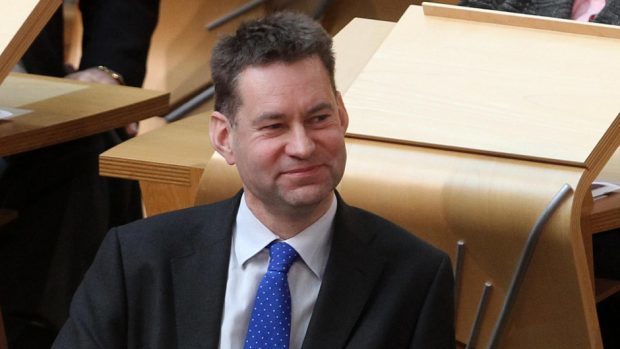Concerns were raised about tax changes in Scotland yesterday after it emerged that income tax receipts were £550million lower than forecast in 2016/17.
The independent Scottish Fiscal Commission (SFC) said the shortfall was due to issues with the data, particularly the number of additional rate taxpayers.
Opposition politicians warned that it could mean that a recent shake-up of tax bands by the Scottish Government was based on figures which were “badly out”.
But the Holyrood government insisted the Scottish budget was “protected” and that the revision was “expected”.
In May, the SFC estimated income tax liabilities of £11.3 billion for 2016/17, but final figures published by HM Revenue and Customs show they were actually £10.7billion.
In a report yesterday, the SFC said: “We believe most of this headline error of £550million is because of data issues.”
It also noted that there was a £50million overestimate of revenue raised by business rates in a forecast made by SFC in December.
Scottish Conservative shadow finance secretary Murdo Fraser said: “This analysis shows there are considerably fewer earners on higher and additional rates than the SNP government thought when it was plotting its tax hike.
“That means future tax receipts could be badly out, and that will have an impact on the Scottish Government’s ability to pay for hospitals schools and infrastructure.”
Labour’s finance spokesman James Kelly said: “This is yet another example of Derek Mackay’s failure to properly look after Scotland’s budget.”
A Scottish Government spokesman dismissed the claims, however, saying: “There is absolutely no impact on the Scottish budget or planned spending as a result of this 2016-17 outturn figure.
“The Scottish Fiscal Commission forecast the 2016-17 figure based on HMRC survey evidence on the number of Scottish taxpayers.
“It was always to be expected that this forecast would differ from out-turn data and is why the Scottish budget is protected from any such change.
“Our income tax policy change for 2018-19 has raised additional revenues to help us reverse the impact of the UK Government’s austerity drive, protect our public services and support the Scottish economy.
“We have done this whilst ensuring that, for the majority of income tax payers (55%) Scotland is the lowest taxed part of the UK this year.”
